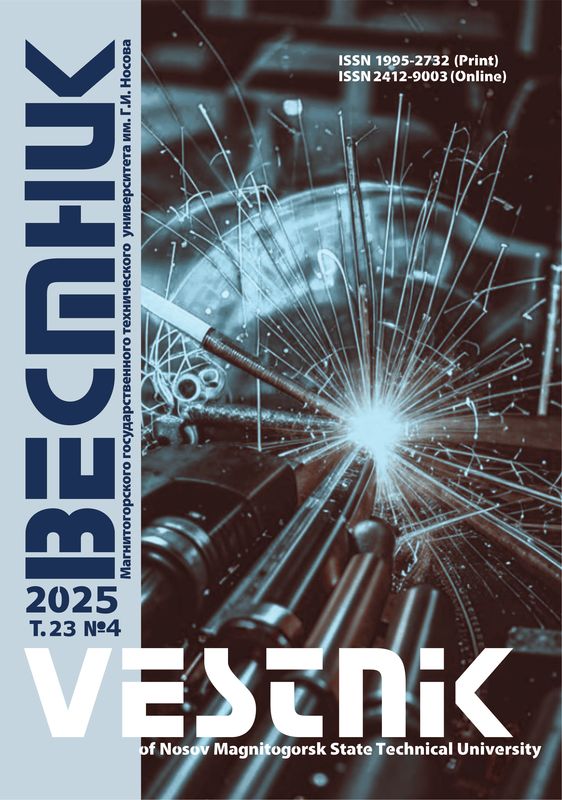DOI: 10.18503/1995-2732-2025-23-2-140-147
Abstract
Relevance. In the current conditions of constant changes at various levels, as well as increasing complexity of technologies and public structures, along with efficiency and effectiveness acquire special value such properties of quality management system (QMS), as resilience and adaptability. Enterprises and QMS as a part of it need to be resilient to external and internal changes in order to maintain their integrity and function sustainably. At the same time, new opportunities, growth and development require adaptability and flexibility. Therefore, a timely assessment of the resilience and adaptability of the system is necessary to achieve long-term results for the enterprise. Objectives. Definition of the methodology for the quantitative evaluation of the state of QMS with the position of stability and adaptability on the basis of the integrity pattern (emmergency) of the general theory of systems. Methods Applied. The article uses methods of systems analysis and general theory of systems, in particular, investigated the pattern of integrity (emergency) applied to the quality management system. For the calculation of integrated indicators of resilience and adaptability, a methodology of quallometry – an integrated assessment of the indicators of the populations of properties is used. Originality. Analysis of QMS based on the principles and regularities of general systems theory. Complex indicators of system resilience and adaptability were determined. Results. Using the proposed methodology, the adaptation and sustainability indicators of an existing automotive company producing lead-acid starter batteries for the period 2019-2023 were calculated. Based on the calculated data, a graphical image of the dynamics of indicators was constructed. The analysis of the results obtained was carried out, and compliance with the systemic integrity pattern (emergency) was identified. Practical Relevance. Timely assessment of QMS with integrated indicators of resilience and adaptability will allow to use effectively the resources of the enterprise, directing them either to maintaining resilience, structural integrity or to increase flexibility, adaptability.
Keywords
quality management system, sustainability, adaptability, integrated indicators of sustainability and adaptability, integrity pattern
For citation
Antipov D.V., Gubanova O.G. Evaluation of the Sustainability and Adaptability of the Quality Management System from the Perspective of Integrity (Emergency). Vestnik Magnitogorskogo Gosudarstvennogo Tekhnicheskogo Universiteta im. G.I. Nosova [Vestnik of Nosov Magnitogorsk State Technical University]. 2025, vol. 23, no. 2, pp. 140-147. https://doi.org/10.18503/1995-2732-2025-23-2-140-147
1. Bertalanfi L. fon. Obshchaya teoriya sistem: kriticheskii obzor. Issledovaniya po obshchei teorii system [General systems theory: critical review. Research on the general theory of systems]. Moscow: Progress, 1969, 520 p. (In Russ.)
2. Sadovskii V.N. Nekotorye printsipial'nye problemy postroeniya obshchei teorii sistem. Sistemnye issledovaniya [Some fundamental problems of general systems theory. System studies]. Moscow: Nauka, 1971. 280 p. (In Russ.)
3. ISO 22316-2017 Security and resilience - Organizational resilience - Principles and attributes. https://www.iso.org/ru/standard/50053.html
4. Sukhatskaya T.S., Troshkova E.V. Povyshenie organizatsionnoi ustoichivosti sistemy menedzhmenta kachestva organizatsii. Problemy sertifikatsii, upravleniya kachestvom i dokumentatsionnogo obespecheniya upravleniya: materialy vseros. nauch.-prakt. konferentsii [Problems of certification, quality management and documentation management. Proceedings of the Russian Scientific Conference]. Krasnoyarsk: Publishing House of Reshetnev Krasnoyarsk State University, 2022, pp. 105-109. (In Russ.)
5. Maria Júlia Eyng Werner, Ana Paula Louise Yamada, Enzo Gabriel Nascimento Domingos, Luciana Rosa Leite & Carla Roberta Pereira. Exploring Organizational Resilience Through Key Performance Indicators, Journal of Industrial and Production Engineering. 2021;1(38):51-65. DOI: 10.1080/21681015.2020.1839582
6. Silva, C.S., Magano, J. Matos, A. Nogueira, T. Sustainable Quality Management Systems in the Current Paradigm: The Role of Leadership. Sustainability. 2021; 13(2056). https://doi.org/10.3390/su13042056
7. Bertalanfi L. fon. Istoriya i status obshchei teorii sistem /L. fon Bertalanfi. Sistemnye issledovaniya: Ezhegodnik [History and status of general systems theory. System Studies: Yearbook]. Moscow: Nauka, 1973. 269 p. (In Russ.)
8. Lapidus V.A., Kastorskaya L.V. Kachestvo i eksponentsial'nyi vek Standarty i kachestvo [Standards and quality], 2020; (10): 78-83. (In Russ.)
9. Stalin I.V. Sochineniya T. 14 [Essays volume 14]. Moscow: Pisatel, 1997, 364 р. (In Russ.)
10. Galushka A.S., Niyazmetov A.K., Okulov M.O. Kristall rosta. K russkomu ekonomicheskomu chudu [Growth Crystal. To the Russian economic miracle]. Moscow: Nashe zavtra, 2021. 330 р. (In Russ.)
11. Stat standart GOST R ISO 9001:2015. Sistemy menedzhmenta kachestva. Trebovaniya. Moscow: Standarts Publishing House, 2020, 32 p. (In Russ.)
12. Genri Ford. Moya zhizn'. Moi dostizheniya [My life. My achievements] Moscow: Publishing House AST, 2020. 349 p. (In Russ.)
13. Belobragin V.Ya. Kachestvo. Vvedenie v nauku ob upravlenii kachestvom [Quality. Introduction to the science of quality management] Moscow: 2013, 349 p. (In Russ.)
14. Volkovoi V.N. Emel'yanova A.A. Teoriya sistem i sistemnyi analiz v upravlenii organizatsiyami: Spravochnik: ucheb. posobie [Systems theory and system analysis in organization management] Moscow: INFRA, 2012, 848 р. (In Russ.)
15. Antipov D.V., Gubanova O.G. Podkhody k otsenke sistemy menedzhmenta kachestva so storony vysshego rukovodstva s pozitsii adaptivnosti i ustoichivosti. Kachestvo. Innovatsii. Obrazovanie [Quality. Innovation. Education], 2021; (174): 11-19. DOI: 10.31145/1999-513x-2021-4-11-19












